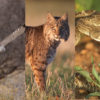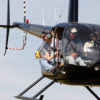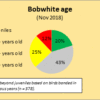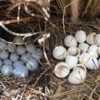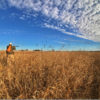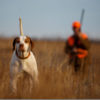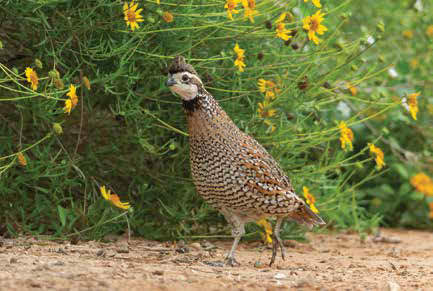
Coupled with increased awareness of the parasite work being done by the Rolling Plains Quail Research Foundation, a dismal 2017-’18 quail season in West Texas and Oklahoma left many hunters pointing fingers at the eyeworm, Oxyspirura petrowi, that’s been at the center of the RPQRF’s investigations. In response, the Oklahoma Department of Wildlife Conservation issued a press release stating that “no scientific evidence exists to support a widely held public opinion that eyeworms are to blame for an unexpected decline in the number of these game birds this past year.”
While acknowledging that a “significant” portion of the late-summer quail population vanished before the hunting season began, the ODWC offered no explanation regarding
why. This is precisely the kind of puzzle the RPQRF—an independent, nonprofit conservation organization founded in 2007 and based at its own 4,300-acre research ranch in Roby, Texas—is dedicated to solving. And, like bird dogs sifting the wind, RPQRF-funded scientists ultimately zeroed in on the eyeworm and a cecal(intestinal) worm, Aulonocephalus pennula, both of which can infest individual quail as well as entire populations. On June 1, the RPQRF’s Board of Directors issued an official position statement with respect to the parasite issue. It was broken down into four headings: “What we know,” “What we think,” “What we don’t know” and “Where we’re headed.”
While the statement includes more “bullet points” than can be covered here, a few seem particularly salient. One, under the “What we think” heading, is: “Based on ‘the weight of the evidence’ as well as field and laboratory data, we believe that quail are impaired by parasitic infection and that their reproduction and survival are reduced.”
That having been said, though, there’s this from “What we don’t know”: “Can the ‘boom and bust’ cycles of quail be reduced by addressing parasite-related concerns?”
Finally, to paraphrase from “Where we’re headed,” the RPQRF hopes to receive FDA approval in 2019 for a medicated feed, QuailGuard, that has proven highly effective at eliminating both the eyeworm and cecal worm; to evaluate the efficacy of this feed and its effects on reproduction and survival; and, via the deployment of a mobile research laboratory, to continue monitoring the incidence of parasitic infection in the Rolling Plains ecoregion.
According to Rick Snipes, past president and current board member of the RPQRF: “We’re fully aware that there’s no long-term data showing a link between parasite infestations and quail-population fluctuations. However, the results from our five years of research indicate we’re on the right track and that the potential benefits of making QuailGuard available far outweigh the risks. Jonas Salk didn’t have any long-term data when he developed the polio vaccine, either, but the benefits so far exceeded the risks that it made sense to vaccinate the entire population. As you’ll recall, that worked out pretty well.”
— TOM DAVIS
Shooting Sportsman




